Director: Sheldon Lettich
Cast: Jean-Claude Van Damme, Geoffrey Lewis, Alonna Shaw, Bolo Yeung, Alicia Stevenson, Paul Aylett, Alan Scarfe, Philip Chan, Corrina Everson, Julie Strain, Wu Fong Lung, John Sham, Peter Malota, David Lea, Sarah-Jane Varley
Running Time: 107 min.
By Kelly Warner
Few things scream “90’s” quite like Jean-Claude Van Damme starring opposite himself in an action movie. The concept of taking an action star and having them play two roles in the same movie is something that producers keep coming back to, often with lackluster results. Jet Li fought his alternate dimension doppelganger in The One, Jackie Chan teamed up with his twin in Twin Dragons, and Van Damme himself has returned to the concept more than once, playing twins in Maximum Risk, a clone in Replicant, and… there’s probably more. Pretty sure he might’ve crossed paths with himself from a different timeline in Timecop. And did Van Damme fight Van Damme in a Universal Soldier movie? No? Well, I just gave them an idea for a sequel. You’re welcome (I’m sorry).
Double Impact kicks off with a Western businessman named Paul Wagner who’s just cut the ribbon on an important tunnel for trade and transportation in Hong Kong. That night, while driving home, Mr. and Mrs. Wagner are assassinated by Triads who’re in league with the businessman’s partner, Nigel Griffith. The only members of the Wagner family to survive are the twin baby boys. The family’s nanny takes one baby and runs off into the night while the Wagner’s bodyguard Frank (frequent Clint Eastwood co-star Geoffrey Lewis) takes the other baby and flees the country. Fast forward 25 years and we find Frank as the surrogate father to Chad Wagner (Jean-Claude Van Damme), who has grown up to be a karate and yoga instructor in Los Angeles. In the years since the incident, Frank has been trying to find out what happened to the other Wagner twin, and photographic evidence places the grown-up Alex Wagner (Van Damme with slicked back hair) in Hong Kong. Frank tells Chad as little as possible before he books them a flight to Hong Kong so that they may go in search of Alex and reclaim their family’s fortunes.
Because Chad knows little or nothing about the reasons behind the trip to Hong Kong, he’s a understandably confused when people in the city act like they know him. One guy gives him “cash money” and a girl reaches down his pants as soon as they get a moment alone. If this sounds familiar to how the unwitting French twin in Maximum Risk was treated upon arrival in the US, that’s because it is! Except here it’s mostly played for laughs. The Hong Kong Van Damme named Alex shows up, head-butts LA’s Chad, and we enter exposition time.
As Frank family tells it, the Wagner brothers need revenge even if they don’t know it. Alex has lived a tough life as a smuggler but he knows next to nothing about his parents and doesn’t seem to care. Chad is more curious, but he’s lived a smiley, happy-go-lucky existence until now, so I’m not sure that revenge or claiming a Hong Kong tunnel really rated high on his to-do list. But revenge must happen, because the loyal bodyguard wills it! And so the twins team up to kill a whole bunch of bad guys in their quest to get their tunnel back… The tunnel seems to be the ultimate goal, even though it’s only glimpsed at the opening and its importance seems ambiguous at best (also, it’s a tunnel).
The chief villain who betrayed Mr. Wagner 25 years back is the real estate mogul Nigel Griffith (Lethal Weapon 3’s Alan Scarfe). Griffith is described as a squeaky-clean businessman and is compared to NY’s Donald Trump. But if you spend just five minutes in a room with Griffith, you realize he’s actually a power mad supervillain (also like Donald Trump). Teamed up with Griffith is Triad boss Zhang (Hard Boiled’s Philip Chan), an equally power mad gangster. Both bad guys have their moments where they’re slimy and evil and fun, but it’s their henchmen that make for more memorable villains. Griffith’s right-hand-lady is the female bodybuilder Corinna Everson, who makes for an intimidating baddie that seems like she just stepped off a Bond movie set. Zhang’s henchman is Moon, a scarred, one-eyed muscle man played by Bolo Yeung (Bloodsport). Bolo demands the viewer’s attention at all times, taking over scenes even when he has nothing to do but just stand there. It’s another cool villain for the veteran who’s played a long line of villains in his career.
There is some good action in the movie, particularly in the finale, which features a few creative, cringe-worthy deaths. Van Damme’s fight with Bolo is the film’s highlight. The two impressive physical specimens make for a good fight when duking out with lesser mortals so when pitted against one another it’s really something for the fans to enjoy.
The ‘twin thing’ is gimmicky and occasionally lame, with subpar special effects, eyelines that don’t match, and contrived reasons to keep the brothers at odds with each other. Van Damme has said that he wanted to do the film as a means to help change his image, as one twin is a violent man and the other is a more innocent average guy, and he got to play with comedy, romance, and drama in the film. Van Damme’s performances in the film are two opposite extremes, neither one of them particularly endearing. Chad is a wide-eyed nice guy with a questionable sense of fashion and Alex is a cigar chewing, hard drinking smuggler. Though Alex is more a product of action movies, Chad is just as unbelievable and silly. Van Damme’s performances usually land somewhere between the extremes of Chad and Alex—it’s a comfort zone the actor has abused, but it’s also where he’s best. Here, when forced to the polar opposites of both characters, you see that the star still had much to learn about the acting craft. Outside of the action scenes, I can’t say that Double Impact is some of Van Damme’s best work.
Any movie with long lost twins fighting bad guys is automatically going to be a little bit silly. Speaking only for myself, I can mostly laugh off Double Impact’s stupidity and enjoy the movie anyway. The action is pretty well done, the villains are memorable and mean, and though Van Damme’s performance is lacking, he cannot be accused of phoning it in. It’s a stupid movie but I rather like it.
Kelly Warner’s Rating: 6.5/10

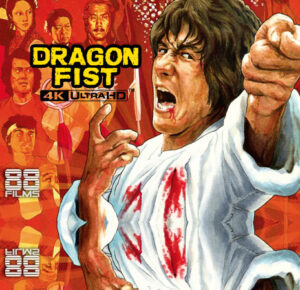
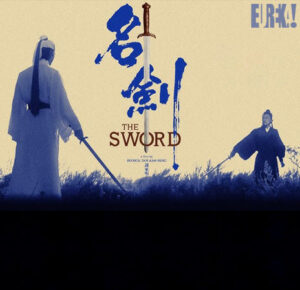
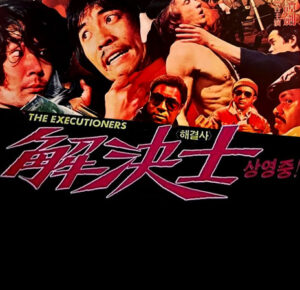
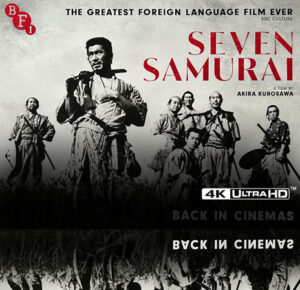
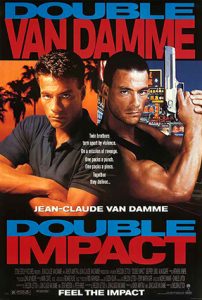
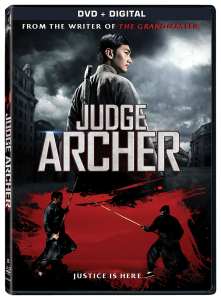
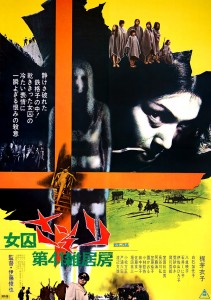
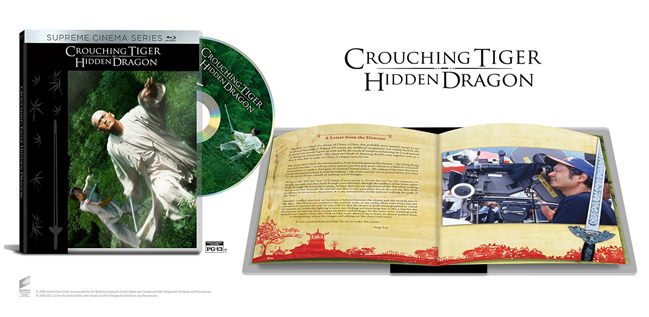
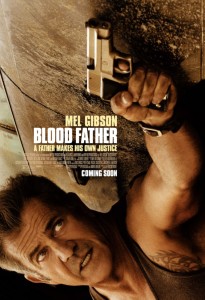

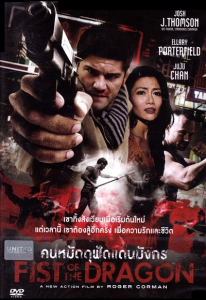
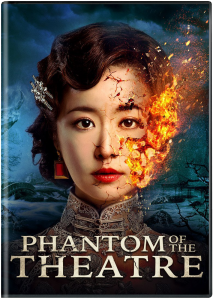

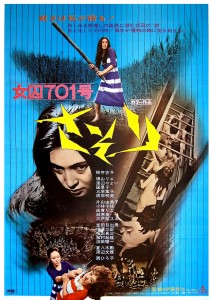
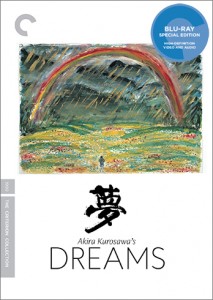
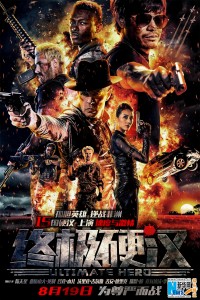
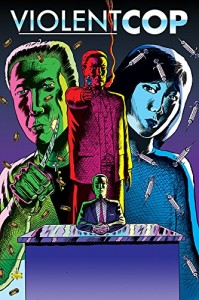
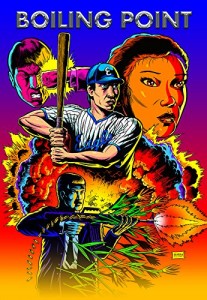




9 Comments